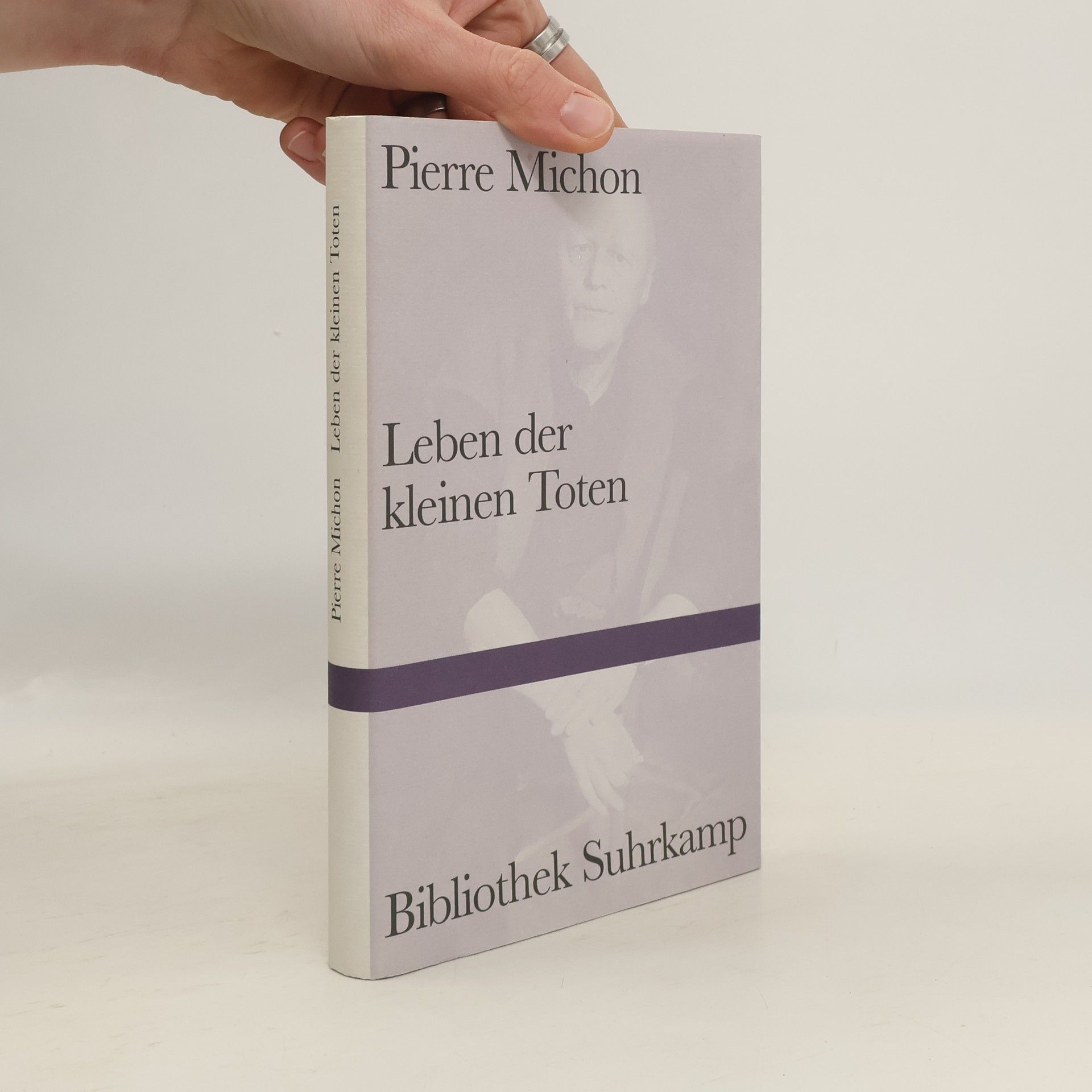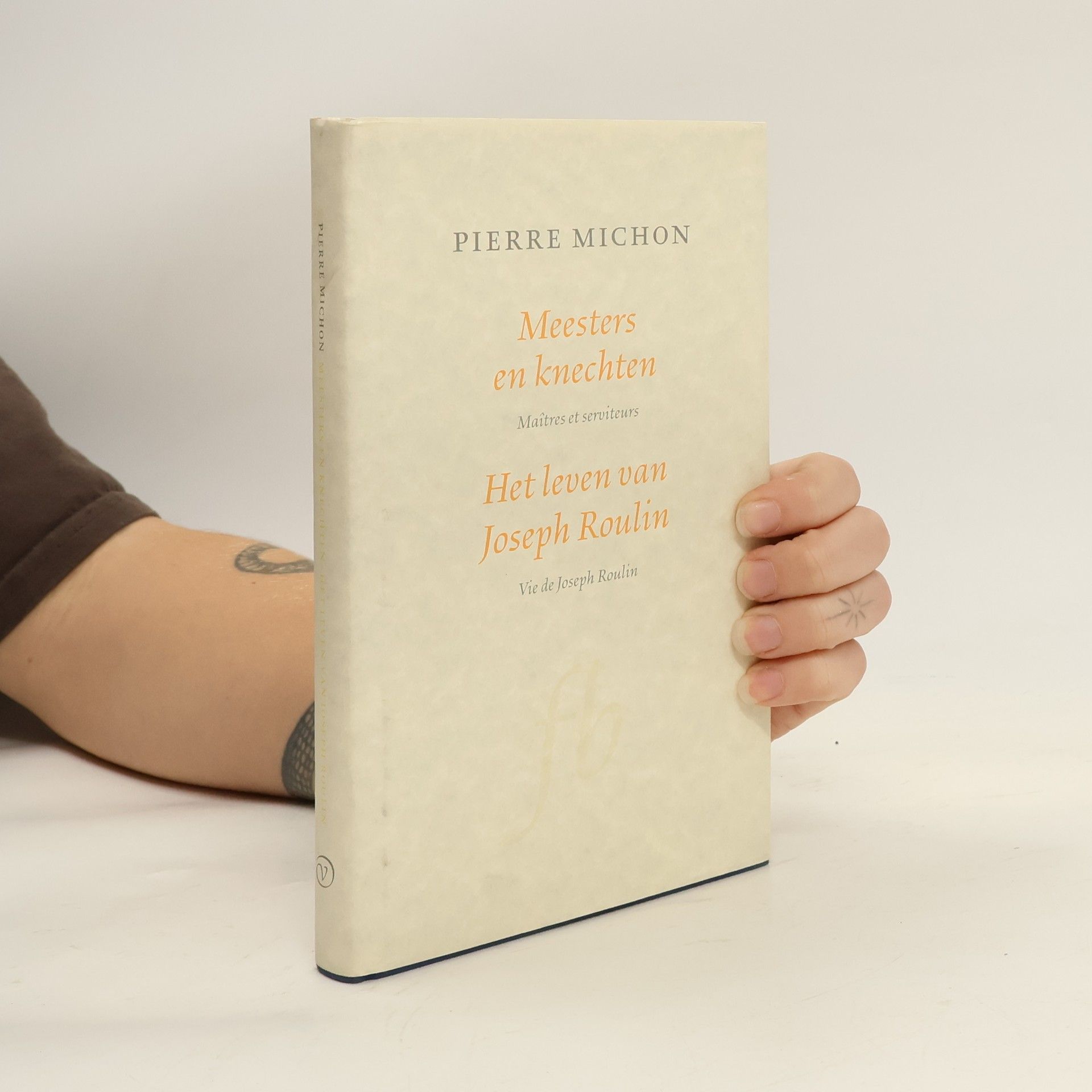Trojice Michonových originálních variací na příběhy středověkých legend přivádí jejich hrdiny do ožehavých situací, v nichž není od víry a náboženského zanícení daleko k tělesným žádostem a zdánlivé vítězství nad sokem či uspokojení z dobře střeženého tajemství se může lehce zvrátit v tragédii. Autorovy stylisticky propracované a mimořádně působivé evokace deset století starých dějů znějí ozvěnou dávných kronik, nedovolují však zároveň zapomenout na věčný svár protikladů lidského nitra a nestálost a pomíjivost všech věcí.
Pierre Michon Knihy
Pierre Michon je oceňovaný francouzský autor, jehož dílo se vyznačuje hlubokým zájmem o historii a lidskou duši. Jeho próza se často zaměřuje na složité vztahy mezi generacemi a na hledání identity v proudu času. Michonův styl je precizní a lyrický, s citem pro detail a psychologickou hloubku postav. Jeho texty zkoumají, jak minulost formuje přítomnost, a jak se jednotlivci snaží najít své místo ve světě.






Meesters en knechten ; Het leven van Joseph Roulin / druk 1
- 164 stránek
- 6 hodin čtení
Verhalen over mensen uit de omgeving van vier grote kunstschilders.
Pierre Michon ist einer der bedeutendsten französischen Gegenwartsschriftsteller. Im Mittelpunkt seiner neuen Erzählung »Die Elf«, einer meisterhaft vertrackten historischer Novelle, steht das berühmteste Gemälde der Französischen Revolution, das im Louvre hinter Panzerglas hängt und elf Direktoriumsmitglieder im Jahr II der Schreckensherrschaft porträtiert. Michon erzählt von dem Maler und dessen Familiengeschichte, von den elf Porträtierten und davon, wie und warum der Künstler den Auftrag zu diesem Bild erhielt - evozierend, akribisch, mit essayistischen Bemerkungen und Ausführungen. Dieses besondere Bild, »Die Elf«, schreibt Michon, bilde Geschichte nicht ab, sondern »sei« Geschichte, ihr Schrecken. Seine ebenso knappe wie virtuose Erzählung baut eine ganz eigene Spannung auf und hält sie, bis zum überraschenden Schluß.
Leben der kleinen Toten
- 220 stránek
- 8 hodin čtení
In »Leben der kleinen Toten« gelingt es Pierre Michon auf wunderbare Weise, Menschen aus kleinen, meist bäuerlichen Verhältnissen zu porträtieren, ohne ihrem Elend auch nur eine Spur von malerischer Idylle anhaften zu lassen. Die Tragik der Schicksale, die so besonders bewegen, rührt daher, daß inmitten dieses Elends plötzlich die Ahnung von einer anderen Welt auftaucht, der Traum vom Reichtum oder vom Wissen – und aus dieser Zerrissenheit zwischen dem Erahnten und dem Gelebten entsteht eine Sehnsucht, die den Menschen, so geringfügig ihre Existenz auch sein mag, Größe verleiht.
Edition Petrarca: Wintermythologien
- 132 stránek
- 5 hodin čtení
Meisterhafte Kurzprosa von einem der bedeutendsten Schriftstellern der Gegenwart. Die Erzählungen dieses Bandes beschwören die Zeit der Frühchristianisierung herauf, als Heidentum und Christentum eng miteinander verflochten waren, als Mönche Klöster gründeten in zum Teil unwirtlichen Gegenden, auf Inseln oder in den Sümpfen. Kleine Lebensläufe sind es, die hier präsentiert werden, kleine Bruchstücke des Lebens von Menschen in einer Umgebung, die sich auch durch seine Brutalität auszeichnet – erzählt in einer monumentalen Sprache, in monumentalen Bildern, in einer geradezu mythischen Überhöhung des Schreibens selbst. Eine überaus kraftvolle Sprache, ob sie die Lust des Fleisches erhebt oder denjenigen, der der Macht verfällt, in verhängnisvolle Wut stürzt. Für Pierre Michon gibt es keinen Bruch zwischen dem Leben eines Mönchen aus dem 10. und dem Leben eines Archäologen aus dem 19. Jahrhundert: Sie alle haben die gleichen Leidenschaften, das gleiche Elend, die gleiche Größe, die uns eigen ist. Und Michon weiß eindrücklich zu berichten von diesen Menschen, von denen die Geschichte uns nichts erzählt, weil sie keine Könige, keine Herrscher waren. Leidenschaftliche und grausame Texte, die immer wieder von Neuem eine Welt erstehen lassen.